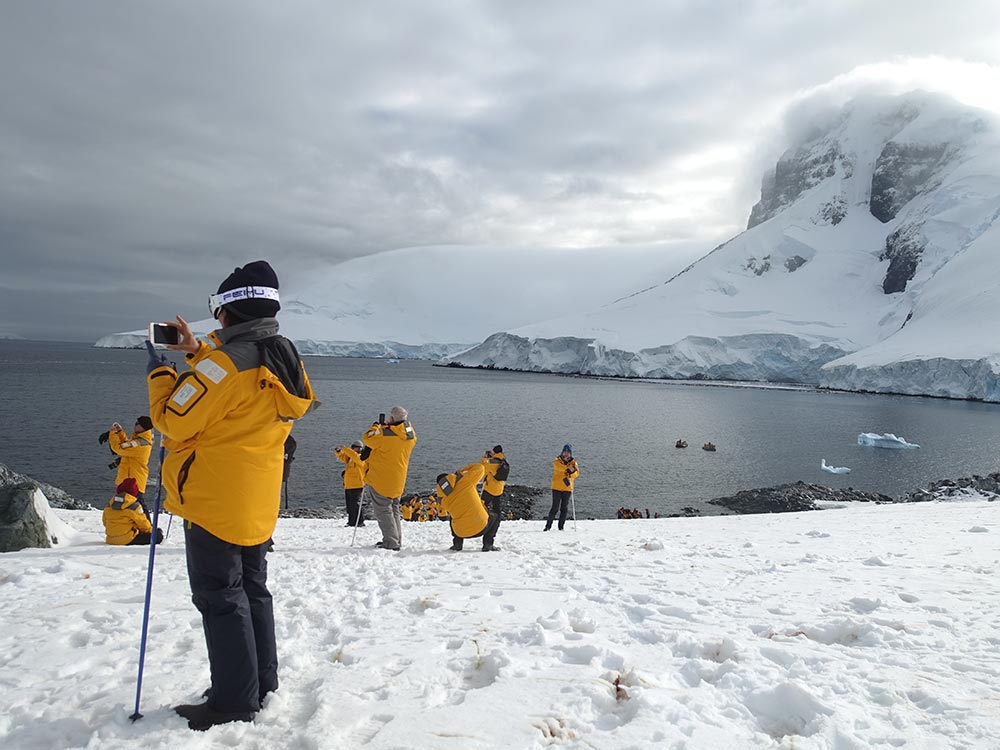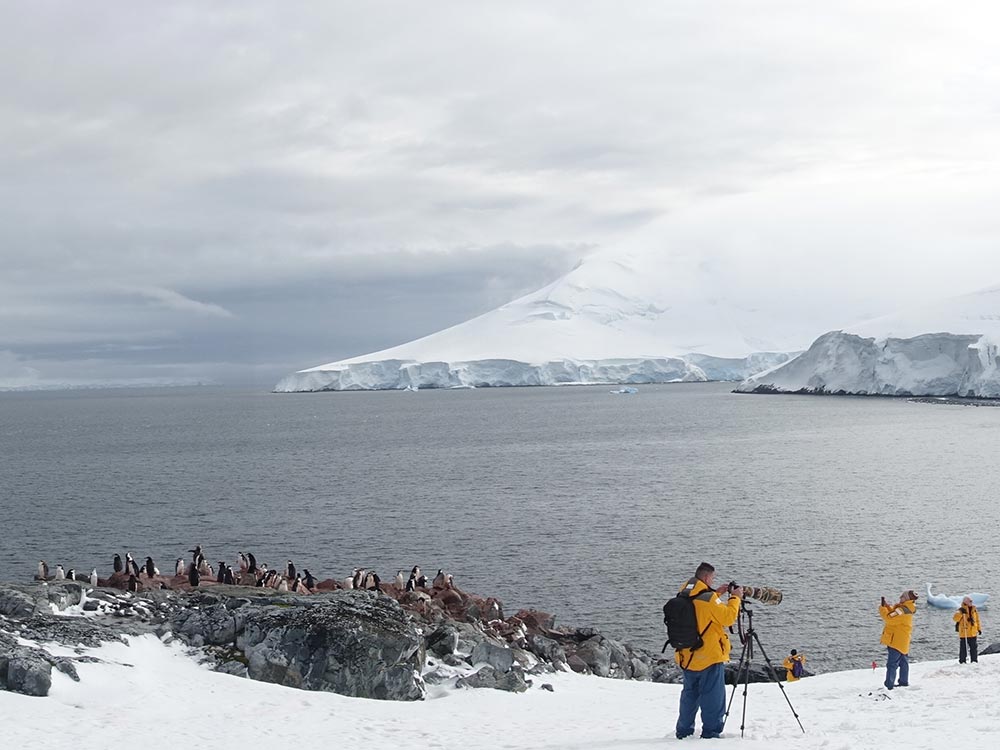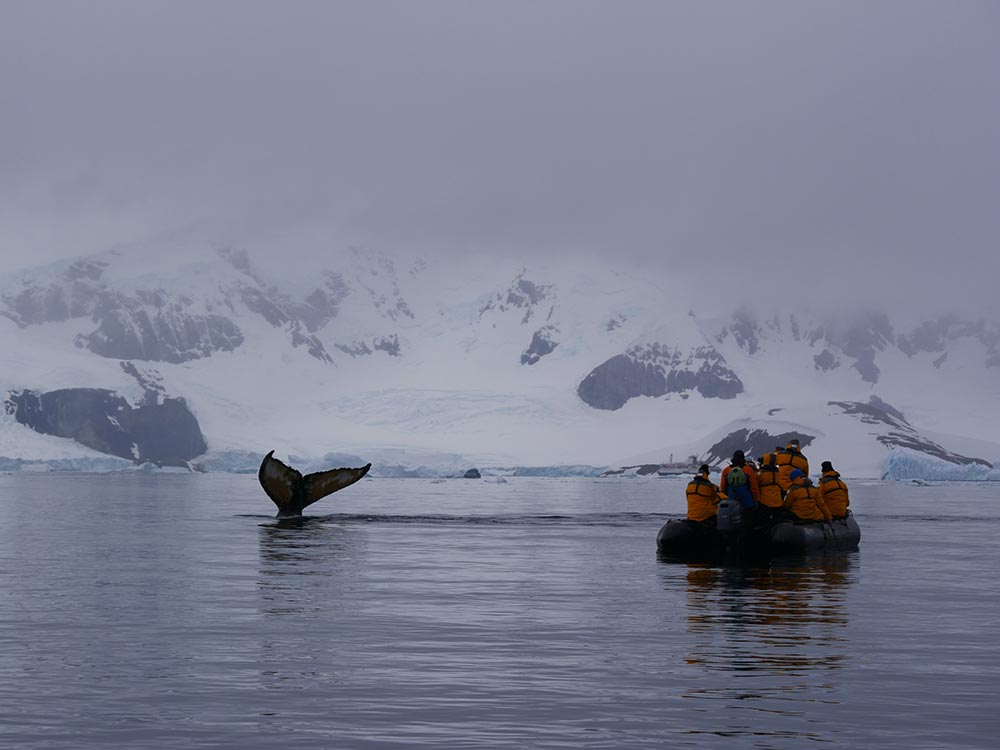Welcome to Antarctic Tourism Research. Our research team takes a multi-disciplinary approach to understanding tourism in the Antarctic region. We want our research to help make Antarctic tourism an enriching and environmentally sustainable experience, benefitting policy-makers, operators, tourists and the Antarctic region.
Current projects
Australia has a large territorial claim on Antarctica and is highly invested in the region's future, frequently playing a central role in political, legal, and environmental debates relating to the continent. A number of Australian-owned and -run tour companies operate in the Antarctic Peninsula area and potential exists for increased Antarctic and Sub-Antarctic tourism directly from Australia. However, the rapid growth and diversification of the industry has raised concerns about its impact on Antarctica's relatively pristine icescape. This two-year project (2022-24) will deliver a best practice framework for facilitating visitor experiences that foster understanding and appreciation of the Antarctic environment across a culturally diverse customer base. The capacity to deliver evidence-based, enhanced visitor experiences will help the project partner, Australian company Intrepid Travel, to strengthen its credentials as a sustainable and culturally aware operator and to lead industry-wide change. In turn, visitor experiences will broaden public understanding of the need to value and protect the unique Antarctic environment.
In April 2021 the University of Tasmania and Hurtigruten created a Memorandum of Understanding between the two organizations, with a view to advancing their shared commitment to Antarctica and the Southern Ocean and conduct mutually beneficial projects. Projects agreed upon include one undertaken by the UTAS Antarctic Tourism Research Team that will explore the impact that citizen science has upon visitors' attitudes towards Antarctica. Over the past five years Antarctica has become a tourism destination where citizen social science is a core part of many businesses' offerings to their visitors - so much so that an NGO, the Polar Citizen Science Collective, exists to coordinate between scientists seeking data and tourist operators. However, despite the popularity of the practice, contention exists as to its impact. Some argue that citizen science is deployed superficially to legitimise companies' operations in a fragile environment. For others, citizen science offers a means through which tourists can undertake a project of meaning, which in turn can contribute to their understanding of the values of Antarctica and the importance of protecting it for future generations. What is lacking is empirical data that reveals the impact that citizen social science has upon the tourist experience and how they value the region. It is these questions that this research seeks to explore, through undertaking in-situ fieldwork made possible by Hurtigruten.
Members of the Antarctic Tourism Research Team (Hardy, Leane and Nielsen) are collaborating with Dutch counterparts on a new four-year project (2022-26 to anticipate Antarctica's uncertain tourism future and minimise impacts on the region's environment. Led by the European Tourism Futures Institute at NHL Stenden University of Applied Sciences, this project aims to strike a balance between tourism on the one hand (visitors, tourism industry partners) and protection and conservation on the other, so to avoid negative impacts of (over)tourism and avoid reactive responses when damage is done, possibly irreversibly. The project takes a novel approach in tourism studies of mapping adaptation pathways - a planning approach addressing the uncertainty and challenges of decision making about tourism-driven change and impacts. The project involves a consortium of organisations, and also includes universities from Canada and the UK, Antarctic NGOs, and the Dutch Ministry of Infrastructure and Water Management.
Team members
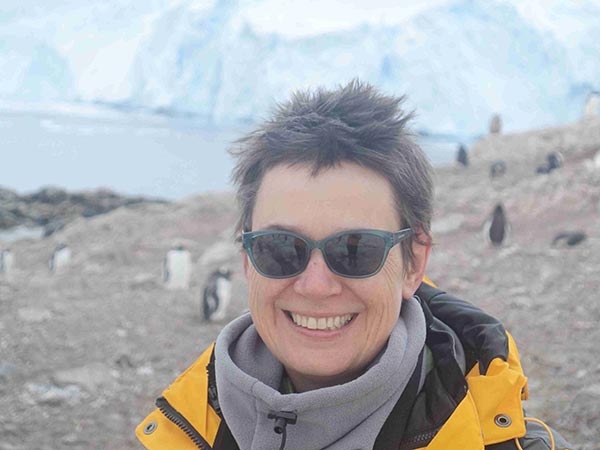
Elizabeth Leane is Professor of Antarctic Studies in the School of Humanities, within the College of Arts, Law and Education, at the University of Tasmania. Her work examines human engagement with Antarctica past and present, with a recent focus on polar travel and tourism cultures, public perceptions of Antarctica, and 'gateway' cities. She is the author or editor of seven books, including Antarctica in Fiction, South Pole: Nature and Culture, Performing Ice and Anthropocene Antarctica. She is currently lead investigator of the Australian Research Council funded project Transforming Tourists' Antarctic Experience and a co-investigator of ADAPT.
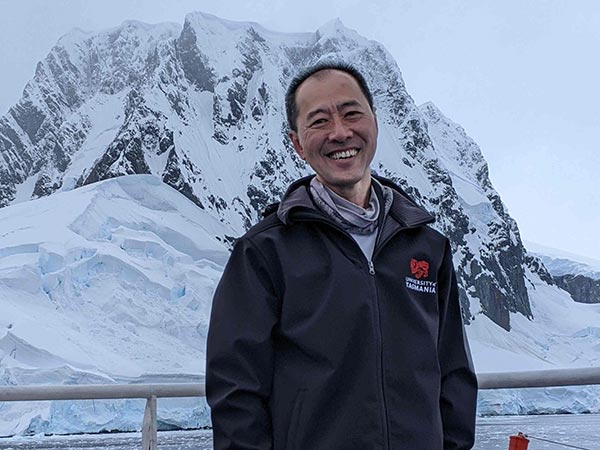
Can-Seng Ooi is Professor of Cultural and Heritage Tourism in the School of Social Sciences, within the College of Arts, Law and Education, at the University of Tasmania. His research focuses on diverse tourism issues, including tourist experience, the social impact of tourism, responsible tourism strategy, and tourism development policy. He went on his first field trip to Antarctica in January 2023. And he has conducted research in Australia, Denmark, Singapore, Malaysia, China and other places. He publishes extensively, and is actively engaged in the critical tourism studies community. He is a chief investigator in the Australian Research Council funded project Transforming Tourists' Antarctic Experience.
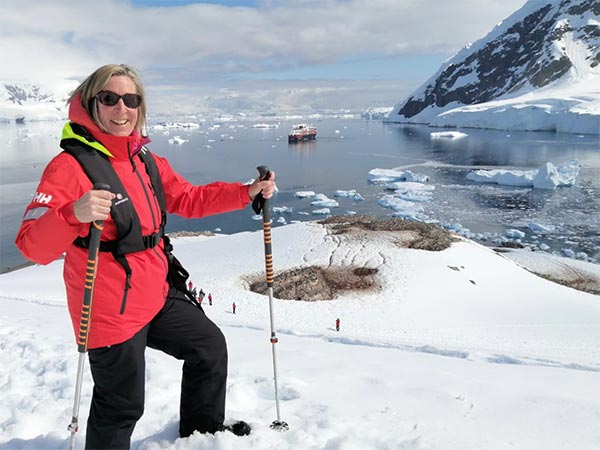
Anne Hardy is an Associate Professor of Tourism and Society in the School of Humanities, within the College of Arts, Law and Education, at the University of Tasmania. She is currently a chief investigator of the Australian Research Council funded project Transforming Tourists' Antarctic Experience and a co-investigator of ADAPT Transforming Tourists' Antarctic Experience.
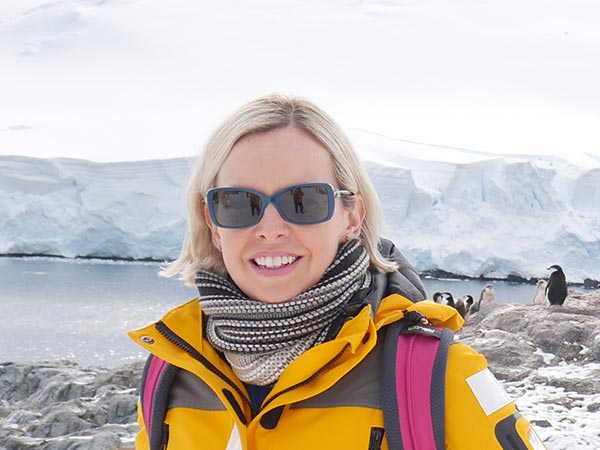
Carolyn Philpott is a Senior Lecturer in Musicology at the University of Tasmania's Conservatorium of Music, as well as an Adjunct Senior Researcher at the Institute for Marine and Antarctic Studies. She has published widely on Antarctic-related music and soundscapes in journals and books in the fields of musicology and Antarctic studies. Her recent work focuses on multisensory experiences of Antarctica, especially the role of the senses in visitors' engagements with the icescape. She is currently a chief investigator on the Australian Research Council funded project Transforming Tourists' Antarctic Experience.
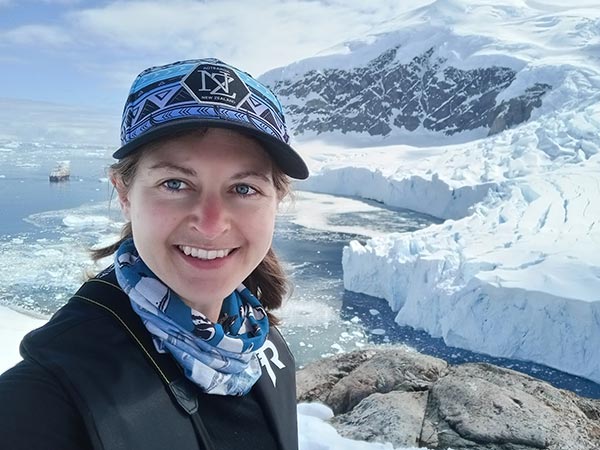
Hanne Nielsen is a Senior Lecturer in Antarctic Law and Governance at the at the University of Tasmania's Institute for Marine and Antarctic Studies. Her research focuses on human interactions with Antarctica, including polar tourism; Antarctica in the media; Literature of the far south; and Antarctica as a workplace. Dr Nielsen has a particular interest in the commercial history of the continent. She is a Chief Officer of the SCAR Standing Committee on Humanities and Social Sciences; a co-lead of the SCAR Tourism Action Group (Ant-TAG); and co-investigator of both the Australian Research Council funded project Transforming Tourists' Antarctic Experience and the NWO-funded ADAPT.
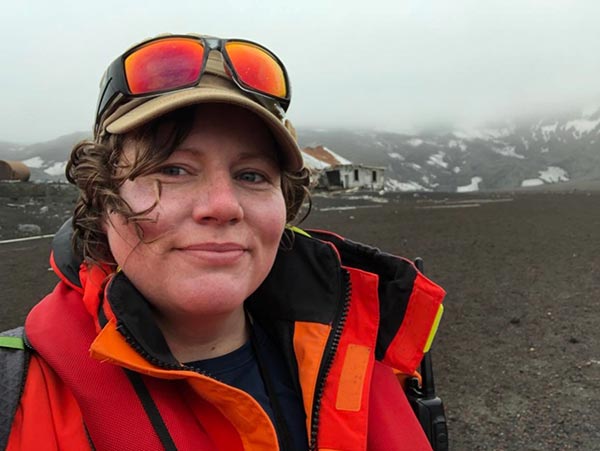
Katie Marx is a PhD candidate and research associate within the School of Humanities at the University of Tasmania. Her doctoral research has focused on place attachment within the Antarctic gateway cities and is the current co-chair of PEAR, a public engagement action group situated within the Scientific Committee for Antarctic Research (SCAR). Katie has a professional background in community development and wants to use her work to understand and strengthen the role that tourism plays in creating Antarctic ambassadors.
Contact us
Please email Professor Elle Leane (elizabeth.leane@utas.edu.au)

